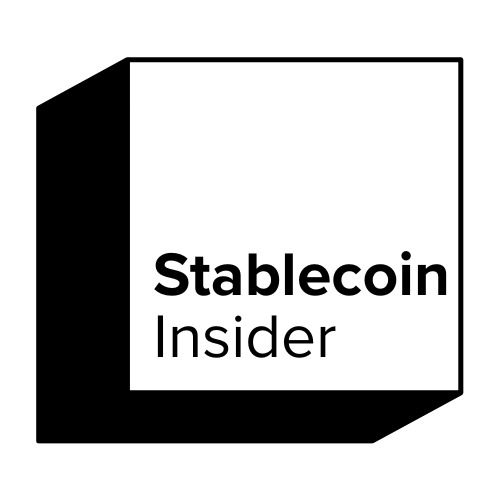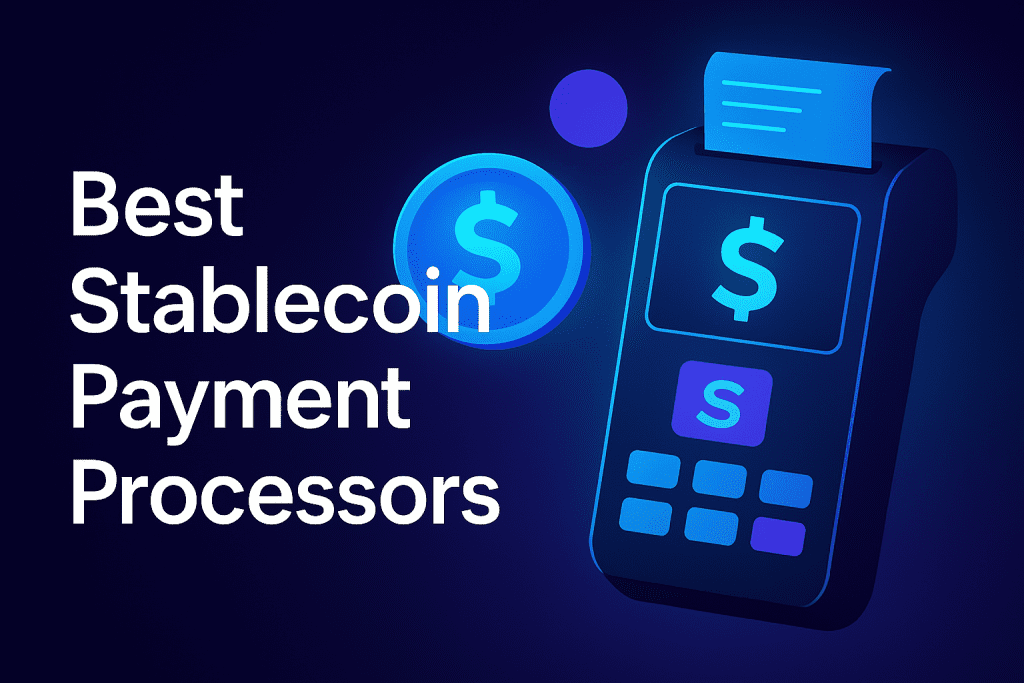Stablecoins have become one of the most practical tools in the crypto economy. Pegged to fiat currencies like the U.S. dollar or euro, they offer the stability needed for payments without the volatility of other cryptocurrencies.
As global adoption increases, stablecoin payment processors are becoming essential for merchants, freelancers, and businesses looking to accept digital payments efficiently.
In this guide, we break down what stablecoin payment processors are, how to choose one, and the best options available in 2025.
What is a Stablecoin Payment Processor?
A stablecoin payment processor allows businesses and individuals to accept payments in stablecoins such as USDC, USDT, or DAI.
These processors often handle the complexities of crypto transactions—like wallet management, price volatility, and transaction fees—while providing merchants with tools similar to those offered by Stripe or PayPal.
Use cases include e-commerce payments, payroll for remote teams, remittances, DeFi payouts, and global B2B transactions.
Key Criteria for Choosing a Processor
When evaluating a stablecoin payment processor, consider:
- Supported stablecoins: USDC, USDT, DAI, TUSD, EUROC, etc.
- Blockchain compatibility: Ethereum, Solana, BNB Chain, Polygon, etc.
- Fiat conversion options: Ability to convert to local currency
- Compliance: Built-in KYC/AML tools for global operations
- APIs and integrations: Tools for custom invoicing, reporting, and accounting
- Payout flexibility: Crypto, fiat, or a mix of both
Best Stablecoin Payment Processors in 2025
Coinbase Commerce
Coinbase Commerce is built for merchants who want to accept USDC or crypto and settle directly into their Coinbase accounts. It supports auto-conversion to fiat and integrates easily with e-commerce platforms such as Shopify and WooCommerce.
The platform offers a simple user experience and high brand trust, making it ideal for small to mid-sized businesses operating in the U.S. While it does not support as many cryptocurrencies or customization options as some competitors, its integration with the broader Coinbase ecosystem makes it a reliable entry point into crypto payments.
Circle
Circle, the issuer of USDC, offers an enterprise-grade payments and treasury management solution with strong compliance features. It supports USDC on Ethereum, Solana, Avalanche, and other chains, allowing businesses to send and receive global payments instantly.
Circle’s tools also include robust APIs, invoicing systems, and account management for large-scale operations. With partners ranging from fintech startups to traditional banks, Circle is the top pick for institutions prioritizing regulatory clarity, liquidity, and scalability.
BitPay
BitPay is one of the pioneers in the crypto payments industry. It supports multiple stablecoins including USDC, BUSD, and GUSD, and integrates with popular retail platforms. Its features include email billing, checkout plugins, and a user-friendly merchant dashboard. BitPay also offers a crypto debit card for end users, enhancing its utility.
However, its orientation remains more focused on traditional retail and e-commerce, with limited functionality for Web3-native operations or smart contract-based automation.
Triple-A
Triple-A is a licensed crypto payment provider operating under regulatory frameworks in Singapore, Europe, and beyond. It supports USDT and USDC, and offers fiat conversion in multiple currencies.
Businesses can settle payments directly to their bank accounts, making Triple-A a practical choice for international commerce. Its robust KYC and AML compliance infrastructure appeals to businesses operating across regulated jurisdictions, such as financial institutions and multinational corporations.
Transak
Transak is best known for its fiat on- and off-ramp functionality, but its growing support for stablecoin payments makes it a powerful backend tool for Web3 apps. Developers can integrate Transak to allow users to buy or sell stablecoins with local currency, making it useful for apps with non-crypto native audiences.
Transak is best known for its fiat on- and off-ramp functionality, but its growing support for stablecoin payments makes it a powerful backend tool for Web3 apps.
NOWPayments
NOWPayments is a non-custodial, crypto-first payment gateway supporting over 150 cryptocurrencies, including major stablecoins like USDT, USDC, and DAI. It offers flexible merchant tools such as donation buttons, invoicing systems, and white-label API solutions.
Businesses can configure auto-conversion to fiat or crypto, and IPN features allow real-time transaction notifications. NOWPayments is particularly popular among online retailers, charities, and content creators looking for versatile crypto payment options.
Request Finance
Request Finance has become a go-to platform for DAOs, Web3 startups, and freelancers needing structured crypto payments. It supports USDC, DAI, EUROC, and other stablecoins across multiple chains.
Key features include invoice generation, recurring payments, payroll automation, and exportable accounting reports. Its clean interface and tax-friendly tools make it easy for teams to stay compliant while operating entirely in crypto.
Comparison Table: Best Stablecoin Payment Processors
| Processor | Stablecoins | Chains | Fiat Support | KYC/AML | Best For |
|---|---|---|---|---|---|
| Coinbase Commerce | USDC | Ethereum | Yes | Optional | E-commerce startups |
| Circle | USDC | ETH, SOL | Yes | Yes | Enterprises & banks |
| BitPay | USDC, BUSD, GUSD | BTC, ETH | Yes | Yes | Online retail stores |
| Triple-A | USDT, USDC | ETH, BSC | Yes | Yes | Global B2B merchants |
| Transak | USDC, more | Multiple | Yes | Yes | Web3 apps & developers |
| NOWPayments | USDT, DAI, more | Multiple | Yes | Optional | Crypto-native shops |
| Request Finance | USDC, DAI, EUROC | Multiple | Yes | Yes | Web3 payroll/invoicing |
Pros and Cons of Using Stablecoin Processors
Pros:
- Faster transactions vs. banks
- Lower fees for cross-border payments
- Access to global customers
- Reduced volatility compared to crypto
- Compatible with Web3 tools
Cons:
- Regulatory uncertainty in some regions
- Gas fees on some networks
- Requires basic crypto knowledge to set up
Who Should Use Stablecoin Processors?
- Freelancers receiving global payments
- Remote teams and DAOs paying contributors
- E-commerce stores wanting crypto checkout
- SaaS companies with global billing needs
- Businesses seeking fast, low-fee cross-border payouts
Final Thoughts
The rise of stablecoin payment processors is reshaping how businesses and freelancers handle global payments. Whether you’re a solo developer, a startup, or an international enterprise, choosing the right processor can streamline operations and cut costs.
As stablecoins continue gaining mainstream traction, having a reliable processor isn’t just a crypto advantage—it’s becoming a business necessity.
Review the options above and select a platform that fits your needs, whether you’re prioritizing compliance, low fees, or seamless Web3 integration.
Read Next:

